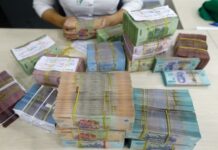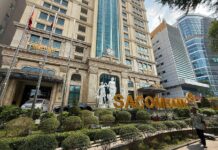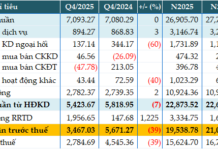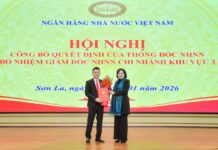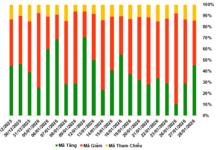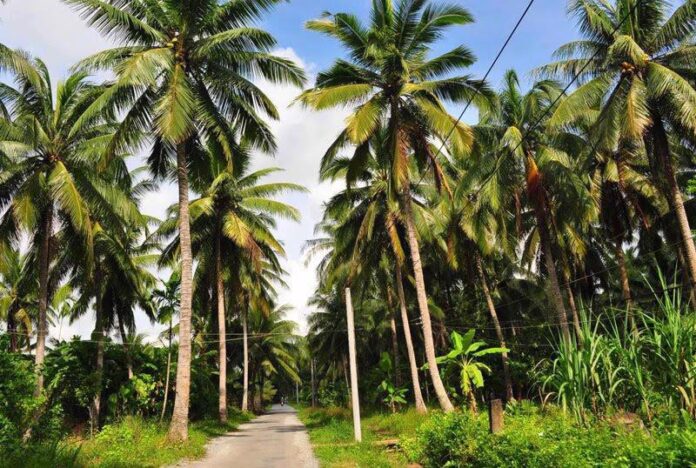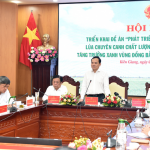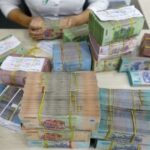As of the latest statistics, Ben Tre province is home to over 79,000 hectares of coconut trees, exporting to 90 countries and territories, bringing in nearly $500 million annually.
COCONUT – AN ENVIRONMENT-FRIENDLY TRADITIONAL TREE
Mentioning Ben Tre means talking about coconut and coconut products, although this locality is also famous for many other specialties and is also known as the “kingdom of ornamental plants” and “kingdom of seedlings”
However, with such a large coconut area (accounting for 47% of the total coconut area of the country and more than 60% of the coconut area in the Mekong Delta), according to some environmental researchers, Ben Tre has the potential to store from 1.9 to 5.8 million tons of carbon dioxide (CO2).
Mr. Tran Ngoc Tam, Chairman of Ben Tre People’s Committee, said that the province’s agriculture sector has been focusing on and will continue to develop eco-agriculture, circular and low-carbon emission, environmentally friendly, and adaptable to climate change. Ben Tre currently has more than 200 products made from coconut for domestic consumption and export, such as grated dried coconut, coconut milk, canned coconut water, coconut candy, coconut jelly, activated carbon, coconut fiber rope, coconut oil, etc.
The head of the provincial government also emphasized that the provincial leaders have identified coconut as the key industrial tree and always pay attention to creating favorable conditions in building mechanisms and policies to attract investment and promote the application of science and technology in coconut production and processing associated with domestic and international consumption needs. Thanks to active investment in technology renewal, the quality of coconut-processed products of the province has been constantly improved. In addition, “enterprises also boldly invest in advanced technology lines to produce coconut oil products serving the high-end market segment,” he said.
Asserting the role and position in the agricultural economy and the ability to adapt to climate change, the carbon storage potential of coconut trees, Assoc. Prof. Tran Trung Tinh, Rector of Can Tho University, cited the world’s scientists’ assessment that coconut is one of the ten tree species that adapt best to climate change and is one of the five tree species that can adapt to desertification. He said that coconut trees, with their large biomass and long lifespan, can absorb a large amount of CO2 from the atmosphere throughout their life cycle.
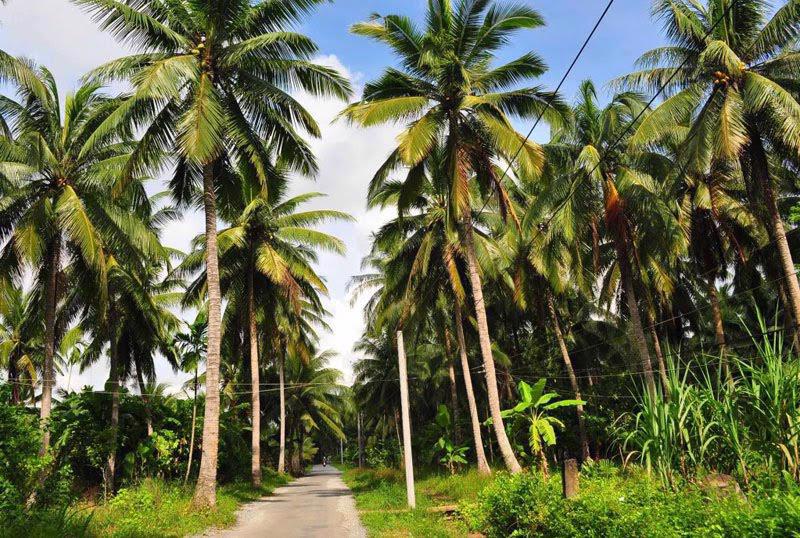
According to Assoc. Prof. Tran Trung Tinh, products made from coconut, especially those that can replace materials from fossil fuels such as plastic, also contribute to reducing carbon emissions. For example, products made from coconut fiber and coconut shells can be used as building materials, insulation products, or even biodegradable biological products to replace environmentally unfriendly materials…
POTENTIAL FOR DEVELOPING THE VALUE CHAIN OF THE COCONUT INDUSTRY
On January 26, 2024, the Ministry of Agriculture and Rural Development issued Decision No. 431/QD-BNN-BNNPTNT approving the project “Developing key industrial trees by 2030,” in which coconut is one of the six key industrial trees of the country (including coffee, rubber, tea, cashew, pepper, and coconut), commonly grown in the Mekong Delta provinces, accounting for 88% of the country’s total coconut-growing area, mainly in four provinces, including Ben Tre, Tien Giang, Tra Vinh, and Vinh Long (accounting for 80% of the region’s total coconut-growing area).
Since 2018, the leaders of these four provinces have established a steering committee for inter-provincial linkage to implement inter-provincial linkage activities in the sub-region, with the coconut industry as the linkage space, as coconut is the key and potential agricultural product of all four provinces.
Statistics from the Ministry of Agriculture and Rural Development in 2023 showed that in the period of 2011 – 2021, the total coconut area of Vietnam grew at an average rate of 2.7%/year, and by 2022, the total coconut area reached about 194,000 hectares, concentrated in the South Central Coast and Mekong Delta regions, mainly in the Mekong Delta.
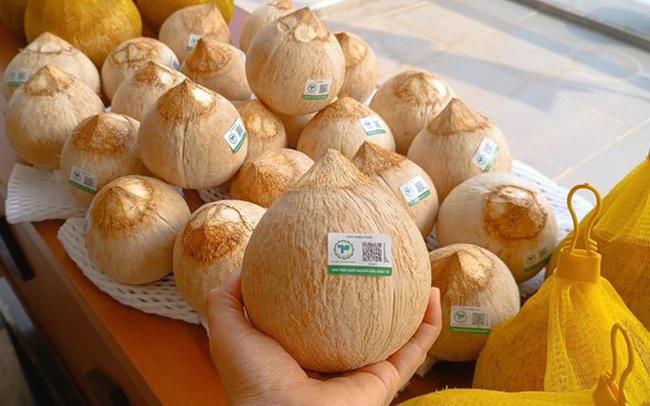
The position of Vietnam’s coconut industry, although its area accounts for only 1.67% of the world’s coconut-growing area, 2.07% of Asia’s coconut-growing area, and only 0.43% and 0.71% of the value of production (reaching nearly VND 7,300 billion) compared to agriculture and the crop sector, but compared to the world market, as of early 2022, Vietnam’s coconut industry ranked 5th in area, 3rd in yield, 5th in output, and 4th in export turnover. In addition, among the six key perennial industrial trees of Vietnam, according to calculations by the Institute of Planning and Agricultural Design in 2023, the profit obtained per hectare of coconut was the highest compared to the other five key perennial industrial trees (VND 210 million/hectare/year for fresh coconut and VND 36 million for processed coconut). These figures show that Mekong Delta coconuts have financial advantages in terms of scale and efficiency compared to other key industrial trees in the country.
Another figure from the Ben Tre Business Association also showed that the province currently has more than 79,000 hectares of coconut trees, of which industrial coconuts account for about 75%, and the rest are drinking coconuts. The value of coconut processing industry in 2023 is estimated at VND 3,750 billion, up 2.74% over the same period and accounts for 9.57% of the province’s total industrial production value. Export turnover is estimated at $420 million, up 1.63%, and accounts for 27.45% of the province’s total export turnover.
According to this association, although it has made significant contributions to the province’s economy, the coconut industry still has certain limitations. These include loose linkages in commercial relations between actors in the value chain, low processing technology, underutilized processing capacity, crude processed products, an imbalance in the source of raw materials for local processing, and weak capital capacity to upgrade technology are the most important limitations.
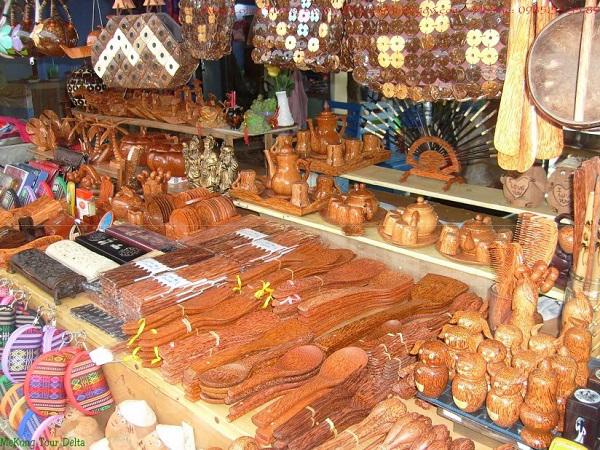
Ben Tre province sets a target for the period of 2024 – 2025 to stably develop 79,000 hectares of coconut trees. Building concentrated coconut-growing areas associated with developing the value chain, applying high technology, circular production, and deep processing of coconut products.
Specifically, develop 1,500 hectares of organic coconuts, bringing the total area of organic coconuts in the province to 20,000 hectares; the area of coconut with a code for the growing region is about 2,000 hectares; renovate 1% of inefficient and old coconut gardens to improve productivity and quality of coconut products.
The plan also aims to increase the value of the coconut processing industry by an average of 17.2%/year; coconut export turnover increases by an average of 23.58%/year, aiming for about $1 billion; at the same time, research, build and develop high-quality tourism products with the unique characteristics of eco-tourism in the coconut river region.
For the period of 2026 – 2030, the province will maintain and stably develop 80,000 hectares of coconut trees. This includes developing 5,000 hectares of organic coconuts, bringing the total area of organic coconuts to 25,000 hectares; the area of coconut with a code for the growing region is about 6,000 hectares; renovate 5% of inefficient and old coconut gardens. The goal is for the value of the coconut processing industry to increase by an average of 15.74%/year; coconut export turnover increases by an average of 14.87%/year, reaching about $2 billion.
Many other contents were also mentioned by domestic and foreign scientists and research institutes at the workshop. Specifically: Determining the ability to absorb CO2 from coconuts; Application of biotechnology in coconut breeding and propagation towards sustainable development of coconut trees in the Mekong Delta provinces; Potential and solutions for sustainable development of the coconut value chain in the Mekong Delta; Carbon credit market: International experience and Vietnam’s policy framework; Developing regional linkage of raw material areas, expanding the area of specialized coconut planting to meet export standards; Orienting the coconut industry to participate in the national science and technology program towards the Net Zero goal…
Bình Thuận’s Dragon Fruit: A New Path for Sustainable Agriculture and Reduced Emissions
The initial successes in growing dragon fruit and reducing greenhouse gas emissions, as well as carbon footprint tracking in Binh Thuan, are evidence that Vietnam has, is, and will be able to apply innovative approaches to develop sustainable agriculture, adapting to climate change…
Urgent Momentum on the Construction Site of the Hau River Bridge
In the scorching heat and gusty wind of the southwestern region in the days leading up to the 2024 Lunar New Year, there is a bustling construction site not far from the beach. Over 300 dedicated workers and staff are diligently working on the construction of the Dai Ngai Bridge, which will soon connect the two banks of the Hau River.
How is the 7 billion USD TPHCM – Can Tho railway project progressing?
The HCMC – Can Tho railway project has been allocated funding for the preparation of a feasibility study report, submitted to the authorized department for resource mobilization and implementation before 2030.






